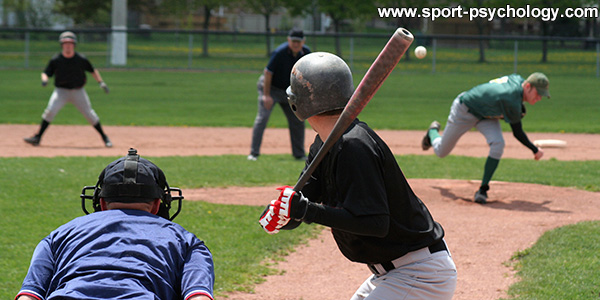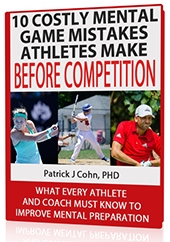
Debunking Mental Training for Athletes
At the start of a new year, you want to ask yourself:
Do I need to work on my mental game as well as physical game?
Why work on the mental aspects of sports?
Doubts about the value of mental training hold back many athletes from delving into exploring the mental aspects of training and its effect on competitive performances.
The Following Thoughts are Common Among Athletes that Have Ignored Mental Training:
- “I have no time for any additional training.”
- “I don’t know what mental training is.”
- “I don’t know how to go about it.”
- “I’m not sure if it will benefit me.”
- “My teammates will think I’m crazy.”
- “I’m a hard worker in practice and push my limits in practice.”
- “I’m already the best on my team.”
Not adding a sound mental training program will hold you back from your potential.
Think about this for a minute…
Would you be 100% okay knowing that you didn’t achieve all you could have after you moved on from competitive sports?
Let’s be super-conservative for a moment…
What if mental training could improve your performance 10 percent…
Would you really be willing to ignore an aspect of training that could help you perform significantly better?
Let’s return to those previous thoughts that may be holding you back from adding mental training to your regimen and reframe each one:
“I have no time for any additional training.” – Do you have 15-30 minutes in the morning, before practice or before bedtime? Just a short amount of mental training could contribute significant gains to your performance in competition.
“I don’t know what it is.” – Mental training is about thinking better, playing smarter, and controlling your mind to handle the rigors of sport in order to perform at your peak.
“I don’t know how to go about it.” – Just as you found a coach, searched for a team or looked for a private instructor, you can do the same to find a mental game coach to help you learn and develop your mental game.
“I’m not sure if it will benefit me.” – The research is there… Many professional and Olympic athletes credit mental training for their success in their sport.
“My teammates will think I’m crazy.” – Who cares? Mental training is training. By introducing mental training to your overall training regimen, you will gain a significant edge over your competitors.
“I’m a hard worker in practice and push my limits in practice.” – That’s great but mental training will help you focus better in practice, work more efficiently and get to the next level in your sport.
“I’m already the best on my team.” – What if you could be even better or perform more consistently? Mental training can help you go from good to great.
Houston Astros’ pitcher Josh James has seen vast improvement to his play on the field due to his mental training regimen.
JAMES: “I’d give [mental training] more credit than anything. The year before I kind of would have been down on myself or I probably would’ve come in the next day and not worked as hard [if I pitched poorly]. But, that [mental training] kind of helped keep me even, not ride the highs too high or the lows too low.”
James’ mental training was a big contributor to his best season as a pro with a 2-0 record and a 2.35 ERA in 23 innings.
You have nothing to lose and everything to gain by adding mental training to your daily regimen.
A Tip For Mental Training:
You can read articles, mental training books, or watch videos on YouTube.
That’s a great start to start to understand your strengths and weaknesses of your mental game.
However, nothing compares to working one-on-one with a qualified mental game coach.
A mental game coach can help you understand the principle of mental training, learn mental skills that impact your performance, and tailor a program to your specific needs.
Related Sports Psychology Articles:
- Mental Training to Improve Tennis Performance
- Mental Toughness Training in Sports
- Mental Training and Concentration – Peaksports Video
Free Mental Toughness Reports

Get instant access to a mental game report to improve your mental toughness. Are you making one or more of these “deadly” mental game mistakes prior to competition? You can improve your mental game with one of our free sports-specific reports below.
with our free mental toughness reports, you’ll:
- Discover if you have positive or negative pregame jitters.
- Identify your pre-competition mental game mistakes.
- Learn the important pregame mental skills to boost your performance and success!
Learn how mental game strategies can boost your mental toughness in sports with Dr. Cohn’s free mental game reports!
